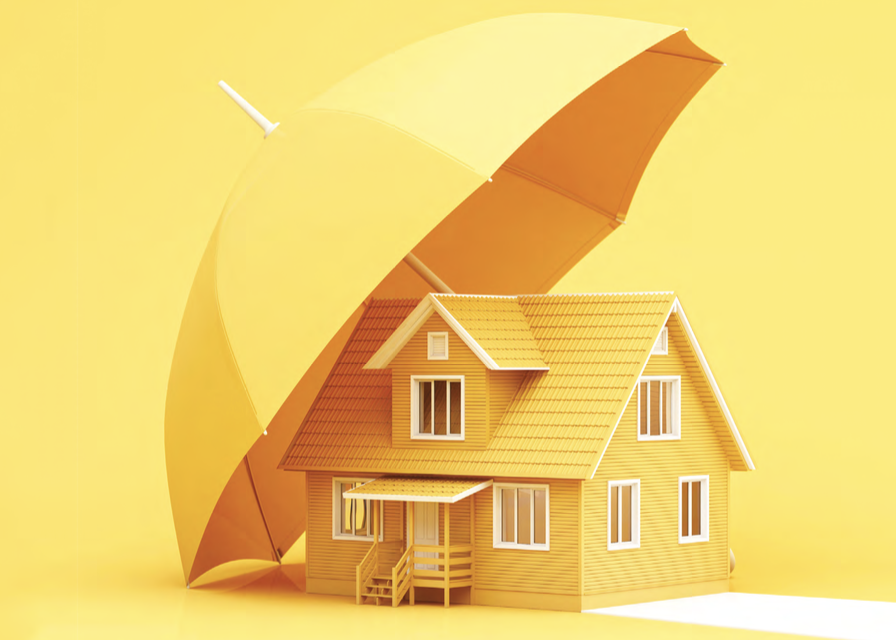By Olev Edur
Costs are rising, but you can take steps to ensure that you pay only what you have to
As every senior is undoubtedly aware, home-insurance premiums are on the rise, and there may be little relief in sight. “Premiums follow the claims,” says Anne Marie Thomas, director of consumer and industry relations at the Insurance Bureau of Canada (IBC) in Toronto. “The more claims, the higher the premiums are going to be.”
She adds that water damage from flooding has become a particularly big problem. “A lot of the premium increases in recent years have been a result of water-damage claims,” she says. “In fact, 2023 was the fourth worst year in claims history, with damage claims totalling $3.1 billion.”
Another growing problem has been damage resulting from an unprecedented number of wildfires, in not only British Columbia and Alberta but also Ontario, Quebec, and even the Maritimes. These events are putting further upward pressure on premiums and will continue to do so, especially if (or, more likely, when) wildfires start encroaching on more heavily populated areas.
Pointing to examples such as coastal Florida, where water damage has been particularly severe in recent years, Thomas adds: “Some insurers will no longer accept insurance applications for houses in flood-prone areas, and the same is becoming true for those in fire-prone areas. In California, for example, getting fire insurance is a struggle. Insurance is supposed to be for sudden and unexpected events, but if fires are a definite possibility, insurers are not going to keep paying year after year.”
In the face of these developments, is there anything you can do to keep a lid on the cost of your home-insurance coverage? According to Thomas, the answer is yes, but she warns that you shouldn’t jeopardize security just to save a few bucks. “There are a variety of measures you can look into if you want to save money on your home insurance,” she says, “but don’t forego coverage in order to save money.”
So, for example, Thomas says you shouldn’t exclude coverage for water damage, even if you live in a high-rise building. “Coverage for water damage is usually a separate rider, and it may seem like an unnecessary extra, but it’s one of the last options you want to remove from your coverage,” she explains. “Some people may think they don’t need it in a condominium [or apartment building], but if your upstairs neighbour’s toilet backs up and the water comes into your home, you could end up paying for any damage to your residence.”
Savings in Your Policy
There are, however, a variety of money-saving measures you can take with your policy itself. For starters, if you also happen to have a car-insurance policy (or any other policies) with a different insurer, Thomas suggests you look at bundling the policies with a single insurer. “Many insurers offer discounts for bundling, often with home and auto policies.”
Another option is to consider a higher deductible—this can have a significant impact on pricing. “Increasing your deductible can save you some money,” Thomas acknowledges, “but if you increase your deductible to, say, $2,000, then make sure you have $2,000 in a rainy-day fund, just in case it should be needed.”
Yet another potential cost-saver is checking to see if you’re actually over-insured. You may, for example, have a rider for your most valuable possessions, but if they’re being kept in safe storage somewhere, you may not need that rider. “If you keep your valuables in a safety deposit box, for example—and this makes sense—it means less exposure for the insurer,” Thomas says.
If you’re paying monthly premiums, some insurers charge a fee for that. “If you can afford to pay a yearly lump sum, or perhaps two or three payments, rather than paying monthly, you may be able to save some money,” Thomas says. “Ask your broker.”
Another area of possible savings is in the calculation of replacement costs. “You can ask your broker or agent to do a new replacement-cost calculation—maybe the cost to rebuild or replace certain items has gone down,” Thomas says. “When was the last time you had this done?”
Other Options
Thomas says that you can find a variety of discounts on home-insurance policies and that different insurers will probably offer different prices on the same deals, so it pays to shop around when your policy comes up for renewal. “There are a lot of possible discounts available with home insurance, and since every company has its own offerings, it can be confusing.” She says that additional cost savings might include:
- reduced premiums if you have a fire- or burglar-monitoring system,
- discounts for those over age 55,
- discounts if your home is mortgage-free, and
- discounts if, for example, you’re among the alumni of certain universities, such as Queen’s or the University of Toronto.
“Some online websites provide quotes for a variety of insurers,” Thomas says. “You can enter your information and get the best quotes from several insurers at once. But rather than simply looking for whatever discounts are available, you should try to determine which company has the coverage that best suits your profile.”
Protecting Your Property
As noted above, having a fire- or burglar-monitoring system for your home could reduce your premiums. And there are other protective measures you can take that, while they may not necessarily reduce your insurance costs in the short term, can provide added security. And over the longer term, they may indeed lead to reduced premiums or make the difference between being able to get coverage or not for your home.
“In wildfire-prone areas, a clay or metal roof can keep your home safer and could result in lower premiums,” Thomas says. “You should also keep your yard clear of brush and debris and other flammable materials. Even those patio chairs full of flammable stuffing can be a problem.
In addition, storing firewood beside your house for convenient access is not a good idea. “You might not think it makes a big difference, but bear in mind that fire damage is usually caused by not the fire itself but embers flying around,” Thomas adds. “I was recently in Nova Scotia, driving from one area to another, and it was amazing to see that some homes were in absolute ruin while others were relatively undamaged.”
“It’s also very important to keep your roof in good repair,” Thomas says. “If shingles are curling or lifting and they get blown off, the insurer may not pay 100 per cent of the cost because the roof was in need of repair at the time.”
Similarly, if you’re planning any renovations or additions to your home, consider non-flammable siding and other components if you live in an area that may at some point be susceptible to wildfire. She also suggests that a sump pump or backwater valve may not save you money but may make it easier for you to get insurance.
And, of course, if you’re thinking of downsizing and moving to a smaller house somewhere outside the city, keep flooding and fire danger in mind—don’t, for example, buy a bungalow right beside the river or a wood cabin in an area that may be subject to fire concerns.
For now, though, Thomas says, “have that conversation with your insurance professional. Your broker may not be familiar with your overall situation, so take 15 minutes to have a chat about what he or she can offer and what you might need.” And then do a bit of shopping around, to compare prices and the features that are most important to you.






